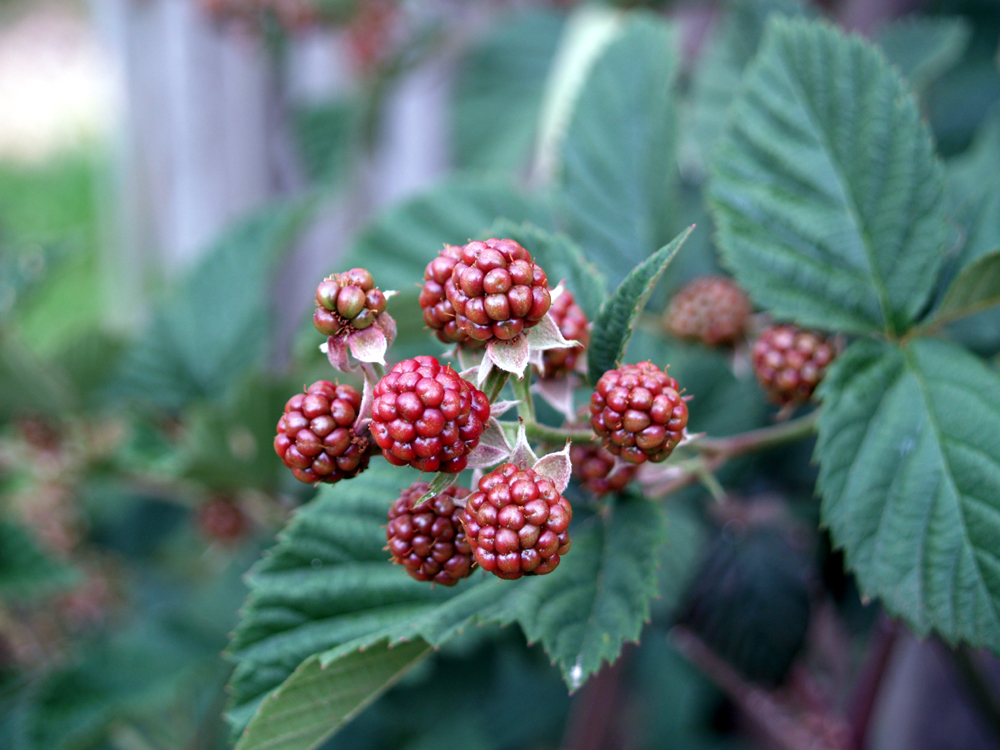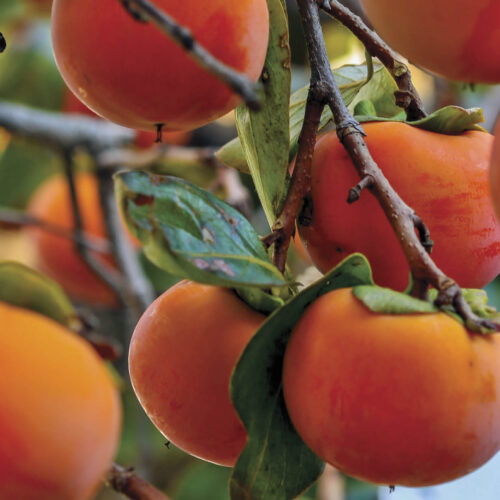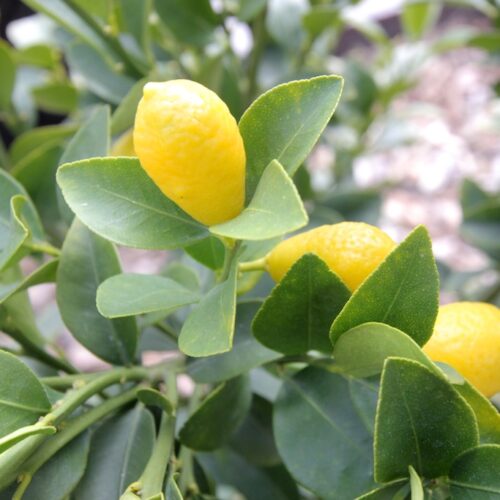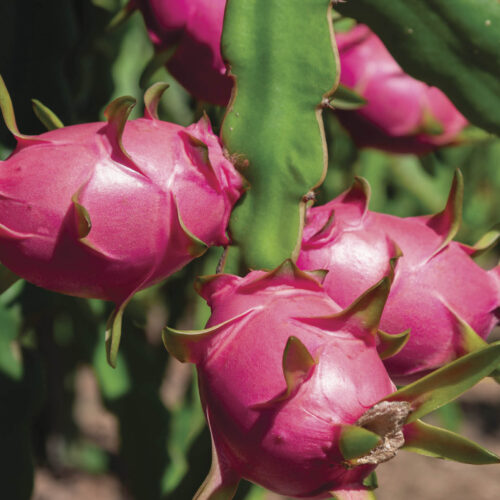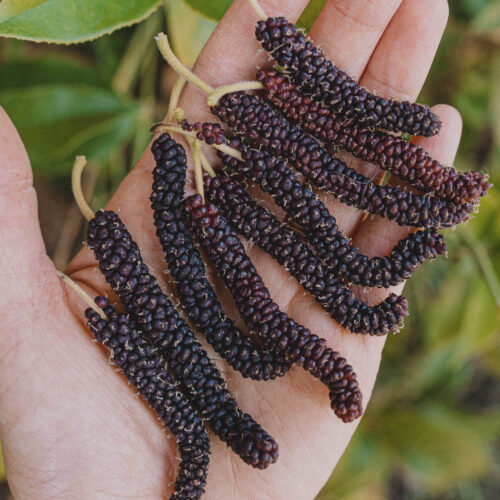Blackberry Season
2011-12-15T04:41:59+11:00
Unlike their wild, uncouth cousins, thornless blackberries are far more refined and oh so delicious. JUSTIN RUSSELL extolls the virtues of this underappreciated cool climate fruit.
Of all the fruiting plants I grow in the garden, the most maligned would have to be the blackberry. When I mention to visitors that we grow a couple of different varieties most non-gardeners turn up their nose, probably picturing a wild tangle of thorny brambles just waiting to rip your forearm to shreds while trying to pick the fruit.
To an extent, this criticism is warranted. Blackberries can be invasive weeds. Down at my local creek they’ve formed great thickets, spreading by natural layering when a cane tip touches the ground, as well as by birds eating the fruit and spreading the seed. For a while I grew loganberries and youngberries in the garden, but I bailed when the plants were still young and pulled them out. Their fruit is delicious, but the plants have savage thorns and if you let them get away, you will rue the day. I’m still pulling up root suckers two years later.
Thornless blackberries are far more manageable. The fruit is just as tasty as the wilder thorny varieties, but the plants are much less vigorous and genuinely thorn free. This makes picking the fruit and training the plants a pleasure, rather than an a shirt tearing hassle.
Of the two varieties we grow, ‘Waldo’ is just starting to finish up, while ‘Chester’ is just starting to fruit. The former has outstanding autumn colour, and the latter beautiful pale pink flowers just like a miniature rose. We started harvesting fruit in early November, and we’ll continue to pick at least a punnet per day of fresh, organic berries from until April, a pretty good result from four plants that take up a measly six square metres of space.
Pests and diseases aren’t very problematic with blackberries. The berries can be prone to botrytis (grey mould) in damp conditions, and blackberry rust can sometimes cause foliage to die off later in the season. Both can be controlled with a spray of copper hydroxide, but I haven’t yet bothered.
A bigger problem is birds. They enjoy the fruit as much as me, and while I consider myself a sharing kind of bloke, those semi-tame king parrots are welcome to enjoying as many wild blackberries as they like. To give them some encouragement, I throw a net over the top of the trellis, leaving the sides open for insect eating wrens and the odd grazing gardener. If you live a cool climate and have slightly acidic soil, I reckon you’d be mad not to give blackberries a try.

